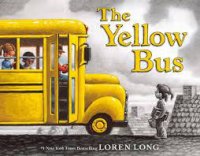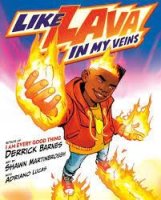************
Demonstrating the power of protest and standing up for a just cause, here is an exciting tribute to the educators who participated in the 1965 Selma Teachers' March.
Reverend F.D. Reese was a leader of the Voting Rights Movement in Selma, Alabama. As a teacher and principal, he recognized that his colleagues were viewed with great respect in the city. Could he convince them to risk their jobs--and perhaps their lives--by organizing a teachers-only march to the county courthouse to demand their right to vote? On January 22, 1965, the Black teachers left their classrooms and did just that, with Reverend Reese leading the way. Noted nonfiction authors Sandra Neil Wallace and Rich Wallace conducted the last interviews with Reverend Reese before his death in 2018 and interviewed several teachers and their family members in order to tell this story, which is especially important today.---from the publisher
44 pages 978-1629794525 Ages 7-10
Keywords: protest, American history, African American, teachers, social activists, biography, 7 year old, 8 year old, 9 year old, 10 year old, Social Studies Curriculum, leadership, 20th century, prejudice and racism
**********
“The connection between race and voter suppression did not end in the 1960’s. While the overtly racist suppression tactics of the Jim Crow past are no longer with us, voter suppression remains a mainstay of electoral politics in the United States today.”
-- Brennan Center for Justice, “The New Voter Suppression” (2020)
The Reverend Martin Luther King Jr. was one of my childhood heroes. I became a reader--and a newspaper reader--in an era when Dr. King was often in the headlines and on TV. Fortunately, I had some progressive young elementary school teachers who were big fans of his. They shared their excitement, so I paid extra attention to news of Dr. King’s work. His ideals influenced my view of America and my developing personal values.
“Dr. King said people shouldn’t be afraid of being arrested. They should go to jail by the thousands to defend the right to vote.”
THE TEACHERS MARCH! HOW SELMA’S TEACHERS CHANGED HISTORY is a gripping tale involving the voting rights struggle that too many black Americans faced in the past and still face today in some of these United States. It’s a picture book that involves Dr. King and one of his fellow ministers. It features a positive depiction of activism, one involving teachers as community leaders.
“Reverend F.D. Reece taught science at R.B. Hudson High School, but his favorite subject was freedom. He believed that everyone was a first-class citizen, just like the Constitution stated. To be treated as less than equal, that just wasn’t right.”
THE TEACHERS MARCH! exposes the unjust and brutal manner in which many black Americans were denied the right to register or to vote. We see a physically violent and unfettered police force that confronts Reverend F.D. Reece when he leads teachers on a march in Selma, Alabama--a march on behalf of voting rights. In those days, in many portions of the United States, people of color were at risk of a police beating--or worse--if they dared seek to register to vote.
Charly Palmer’s vivid acrylic paintings depicting the march complement the equally powerful text.
As we learn in the Author’s Note, these teachers in Selma motivated others to stand up and to keep standing up. Just six weeks after the march depicted here, Reverend Reece and others involved in the Teacher’s March stood alongside Dr. King on the Edmund Pettus Bridge and took their licks from the cops. Those events helped persuade then-President Lyndon Johnson to make his all-out push for what became the Voting Rights Act of 1965.
As detailed by the Brennan Center for Justice, many states are still enacting registration laws whose purpose is to disenfranchise certain parts of the population. Of course, in a more just America, all citizens would be encouraged to vote, not made to jump through hoops.
It was a blemish on the nation that, in the 1960s, black Americans were still being brutally denied the vote. It’s even worse that, fifty-five years after these events took place, voter suppression remains such a pressing Civil Rights issue in America.
THE TEACHERS MARCH! is one of the best Civil Rights books I’ve seen lately. It’s one that I encourage you to read and to share with 9-14 year olds, as well as teachers in your life.
Recommended by: Richie Partington, MLIS, California USA
See more of Richie's Picks






